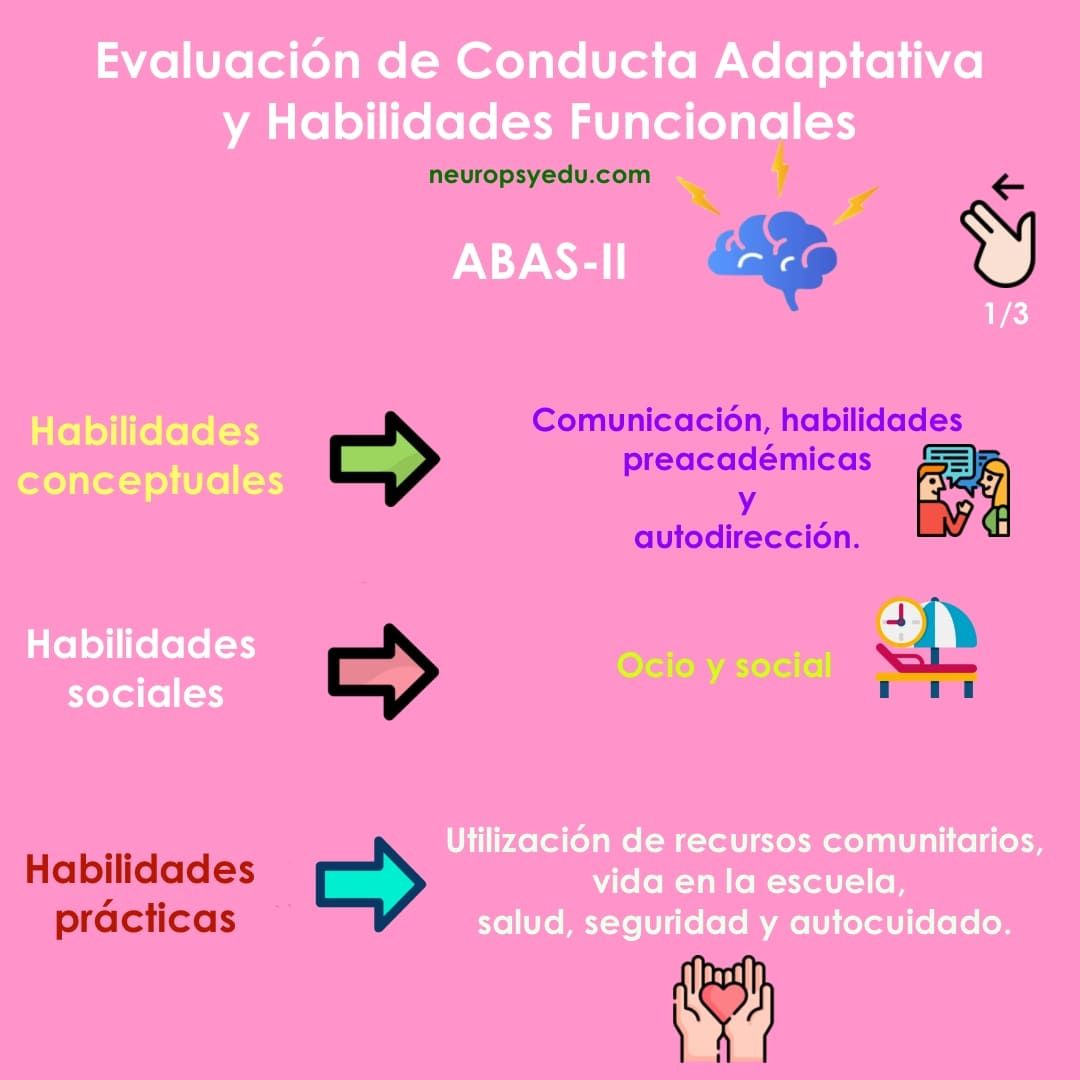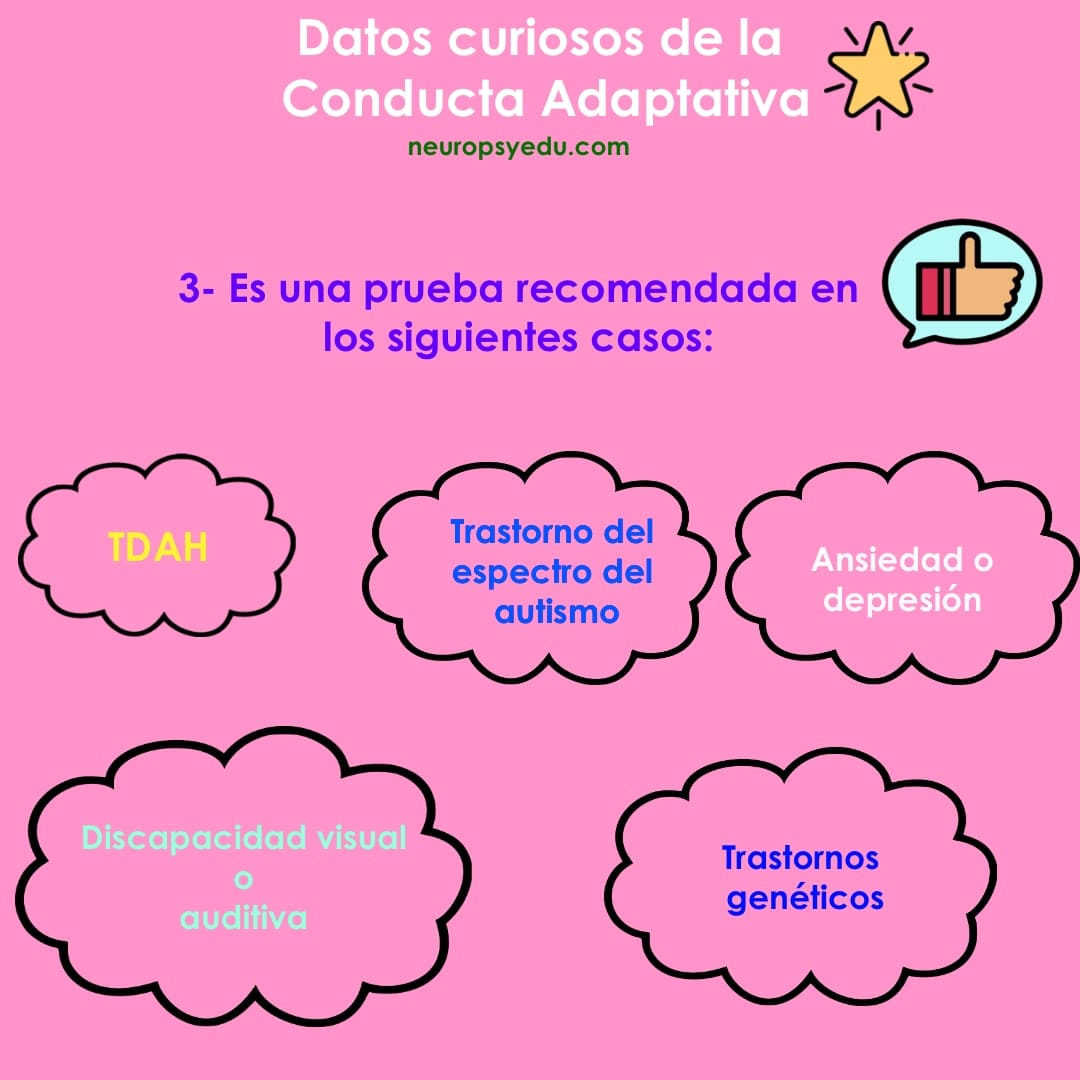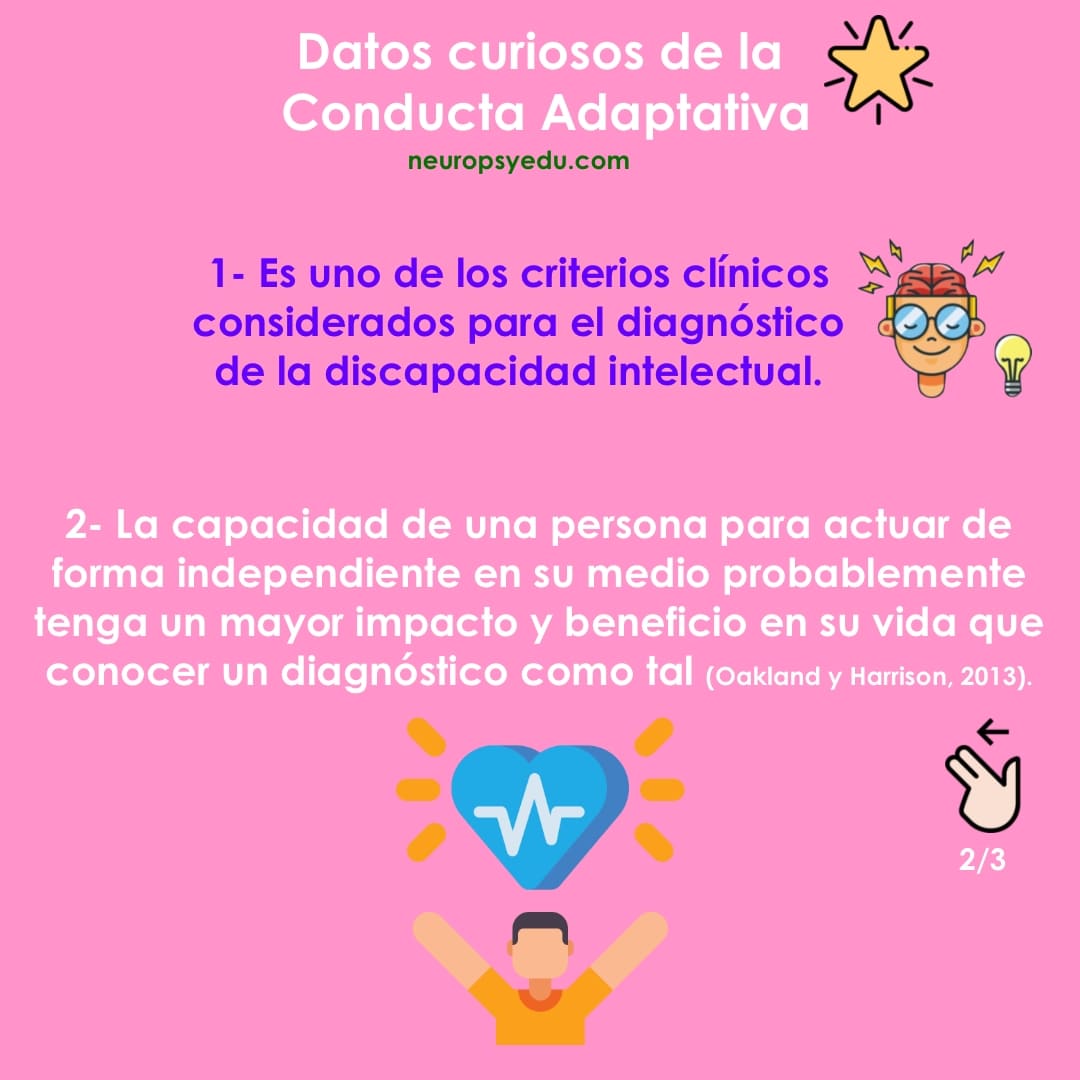Adaptive Behavior and Functional Skills Assessment (ABAS-II)
For more information on the topic of adaptive behavior and functional skills, I recommend reading the following article:
Adaptive behavior from a neuropsychological approach
The ABAS-II is an instrument designed to assess and identify strengths and weaknesses in relation to behaviour and adaptive skills. What does this mean? It means that it is a useful test when determining how a person functions in different contexts of his or her life. It is a multi-method and multidimensional test.
🤔 Why is it multidimensional? Because it assesses a variety of areas that are related to adaptive behavior. From communication skills, leisure and social interaction, to skills related to self-care, following safety rules, motor skills and following instructions, among others.
🤔 Why is it multi-method? Because it is an instrument that can be applied to family informants and school informants, an aspect that allows for further strengthening the conclusions, since quite precise information would be obtained about the functioning of the person evaluated in various contexts and scenarios.
What benefits does the assessment of adaptive behavior and functional skills provide?
✅ It allows us to determine whether a subject shows the necessary skills to cope with the demands of the various environments in which he or she participates. For example, home, school and community.
✅ The assessment of adaptive behavior and functional skills allows for planning intervention programs, since the services and supports that the patient requires to function optimally in their environment would have been identified.
✅ It is a very important test when diagnosing intellectual disability. Let us remember that one of the diagnostic criteria for intellectual disability that appear reflected in the DSM-V says "intellectual disability produces deficiencies in adaptive behavior, in such a way that it interferes with the fulfillment of developmental standards that are necessary to lead an autonomous and independent life."
✅ Not only is it an assessment that contributes in cases of intellectual disability, but it is also essential to evaluate adaptive behavior and functional skills in cases of autism, attention deficit with or without hyperactivity, learning disorders, behavioral and emotional difficulties, hearing, motor disabilities, neurological and pervasive developmental disorders. Additionally, it can also be a valuable tool in cases of genetic disorders, low birth weight, premature birth, and neurocognitive disorders.
✅ Reason? It turns out that knowing a person's ability to adapt to the environment, acting independently and autonomously, probably has a greater benefit and impact on treatment than just knowing their diagnosis. This would help specialists, schools and families understand the support services that should be put in place to strengthen functional areas.
In our view, identifying areas of strength and weakness related to functional skills is invaluable, as it would help professionals, educational centers and families understand how support services can be provided to benefit children, adolescents and adults. Please do not hesitate to ask about our adaptive behavior and functional skills assessment service.
If you want to deepen your knowledge about the ABAS-II (Adaptive Behavior Assessment System), we recommend watching the video👇🏻









